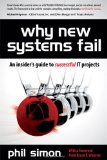Project Management Tools that Save you Time and Money
Managing an ERP Project requires the right project management tools. Using pre-defined tools saves a lot of time and effort and prevents you from “recreating the wheel.” Being able to run an ERP project effectively requires that you be on the top of your game, everyday. There are an infinite number of challenges that may arise to create problems for you. That is why you don’t want to spend time trying to build new forms, templates, presentations and the like from scratch. You have better things to do.
Having run many projects, we understand the time commitment and the challenges. As such, we are listing out some very useful and time saving tools. Some are references, some are downloadable templates. But together, they can assist you in running your project smoothly and with adequate controls.
Project Management Tools – Deliverables Templates
You’ve just been assigned a new project and you now need to put in place the weekly status report, the project charter, the project plan, the ERP Vendor criteria checklist, and so on. Unless you work for a consulting firm, you may not have these various documents on-hand. As such one of the best resources we have found is this collection of project management tools and templates. You should download the entire collection of project management tools and set it aside for the many various projects you might encounter in your career.
Another useful collection of templates are a set of Powerpoint slides that explain what ERP is and does, as well as Lean Manufacturing, and other business topics. These will save you a lot of time. Again, instead of starting from scratch, you can tweek and modify. You can find this collection here.

Project Management Tools – Collaboration
Working with a project team with hundreds of tasks assigned can be difficult to manage. Fortunately we have found the ideal solution in a web based software called Nozbe. Originally designed for people who want to use the GTD Methodology (Getting Things Done), it has grown into a project manager’s dream tool. Use it individually or in a team to accomplish a lot and get things done.
Project Management Tools – Project Management References
One of the best sites we have found that lays out the entire process of project management is the ePMBook. It is from the UK, but if you live in the US, it is just as applicable. If you are new to Project Management, or you are a seasoned veteran, this free online ebook will provide you with all the reference material you need to be successful.
Of course the ultimate resource is the Project Management Institute and their PMBOK (Project Management Body of Knowledge). If you are serious about field of Project Management and want to get more training and access to other project management tools, then you need to become a member of PMI. If you wish, you can pursue the Project Management Certification that they offer.
Do you have project management tools you refer to all the time? Please comment and let us know about them.
Project Management Tools





